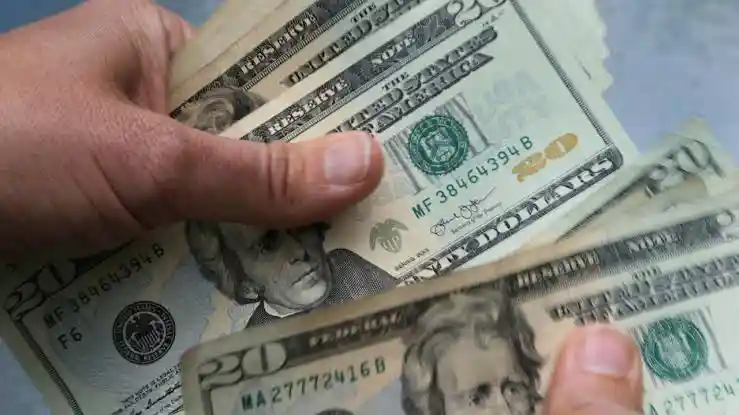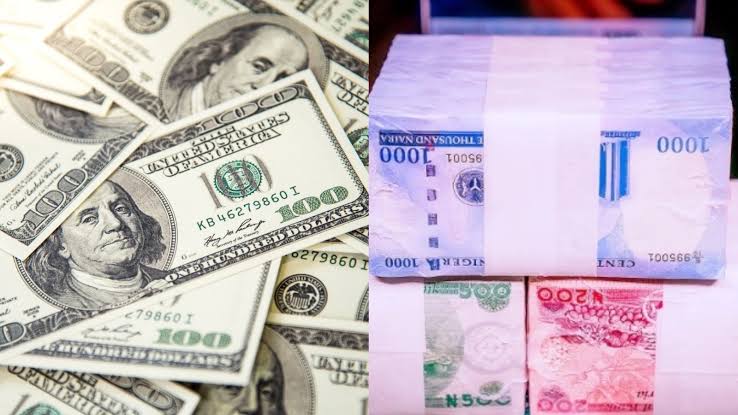How much is Dollar to Naira Today? A Dollar to Naira Today in Black Market – 10/26/2023 is 1300 Naira. Black Market Rates. Dollar to Naira rate.
Full details of Daily Dollar to Naira black market exchange rate today in Nigeria can be accessed below.
- Abokifx – Aboki Forex: Dollar to Naira Black Market Today
- Dollar to naira today black market in Nigeria .
Read Also Nigerian Newspaper Headlines: 10 things you need to know today, Oct 26 2023
Dollar to Naira black market exchange rate today October 26, 2023:
According to reports from bureau de change (BDC) operators, the Black Market Dollar to Naira exchange rate today stands at:
- Buying: ₦1290 for $1
- Selling: ₦1300 for $1
To put today’s Dollar to Naira black market exchange rate into perspective, traders in this unofficial market are purchasing one US dollar from customers for ₦1290 and selling it for ₦1300. This demonstrates a significant difference when compared to the official dollar to naira rate.
Dollar To Naira Yesterday Black Market Exchange Rate.
The dollar to naira yesterday exchange rate at the black market closed at ₦1300/$1. Please noted that the dollar to naira yesterday closing is determined by the average dollar to naira rate traded at various platforms.
Official CBN Exchange Rates
The Central Bank of Nigeria (CBN) sets the official exchange rates, with the following rates in effect:
- Buying: ₦809 for $1
- Selling: ₦810 for $1
Under these official rates, the CBN acquires one US dollar for ₦809 and sells it for ₦810 through authorized dealers.
Dollar to Naira Bank rate today.
- GTBank Dollar to Naira exchange rate black market
Furthermore, data indicates that the average Dollar to Naira Exchange Rate Today at bank is as follows:
- Buying: ₦909 for $1
- Selling: ₦910 for $1
This means that banks were selling one US dollar for 910 naira and buying it from customers for 909 naira.
Dollar to Naira Exchange Rates: CBN and Bank Rates as of October 26, 2023
FAQ on Aboki dollar to Naira today black market.
Here are the inquiring about Aboki Forex and the exchange of currencies.
Q: Does Aboki Forex Trade (Exchange) Currencies? A: No, Aboki Forex does not trade or exchange currencies. It is a platform that provides information on currency exchange rates in various markets.
Q: How can I Exchange Currency? A: To exchange currency, you can contact your local currency exchange market or a bank. They will provide you with the current exchange rates and facilitate the exchange.
Q: Are the Black Market Rates accurate in all Markets? A: No, the Black Market Rates provided by Aboki Forex may not be accurate in all markets. These rates represent average rates in the local markets. Since the black market is not regulated, exchange rates can vary between different locations.
Q: What is the difference between CBN, I&E, and Black Market Rates? A: The Central Bank of Nigeria (CBN) rates are typically set by the Nigerian central bank and are often used for official purposes. The Investors’ and Exporters’ (I&E) rates are also regulated and represent rates used for investment and foreign exchange transactions. In contrast, the Black Market Rates are unofficial rates in the unregulated black market, where currencies are exchanged outside of official channels. These rates can differ significantly from the CBN and I&E rates.
Influential Factors in the Naira’s Depreciation Against the US Dollar
Several factors contribute to the devaluation of the naira against the US dollar in Nigeria. These factors include:
- Fluctuating Oil Prices: Nigeria’s economy is highly dependent on oil exports. When global oil prices decline, it reduces the country’s revenue, foreign exchange reserves, and puts pressure on the naira’s value.
- Foreign Exchange Reserves: The depletion of Nigeria’s foreign exchange reserves, often due to servicing external debt, can weaken the naira’s exchange rate.
- Exchange Rate Policies: The Central Bank of Nigeria (CBN) plays a vital role in setting exchange rate policies. Interventions to maintain an official exchange rate, especially when foreign reserves are low, can lead to devaluation.
- Inflation: High inflation erodes the purchasing power of the naira, making it less attractive to foreign investors and causing devaluation.
- Economic Uncertainty: Political instability, economic uncertainties, and security concerns can deter foreign investments, reducing foreign exchange inflow and leading to naira devaluation.
- Global Economic Factors: Events like the COVID-26 pandemic can have a significant impact. The pandemic disrupted global trade, led to a drop in oil prices, and subsequently affected Nigeria’s foreign exchange earnings.
- Market Speculation: Speculative activities in the foreign exchange market can influence the naira’s value. Speculators betting on future devaluation can contribute to the naira’s decline.
- Balance of Trade: An unfavorable balance of trade, where imports significantly exceed exports, can strain the country’s foreign exchange reserves and put pressure on the naira’s value.
- Government Policies: Policies related to trade, foreign exchange, and economic management can affect the naira’s value. Decisions like fuel subsidy removal can impact inflation and, by extension, the exchange rate.
- Overall Economic Performance: Nigeria’s economic health, including GDP growth, employment rates, and overall economic stability, plays a role in determining the naira’s value in the international market.
These factors collectively contribute to the devaluation of the naira against the US dollar, shaping Nigeria’s exchange rate dynamics.
The exchange rate of the dollar to naira holds great significance as an economic indicator of Nigeria’s performance and stability. This rate fluctuates across different markets, including the CBN, banks, and the black market. While CBN and bank rates are officially regulated, the black market rate is determined by market forces.

That is the latest daily Dollar to Naira black market exchange rate today, Dollar to naira yesterday. You can always visit this website for daily dollar to naira rates and the latest news in Nigeria.”







